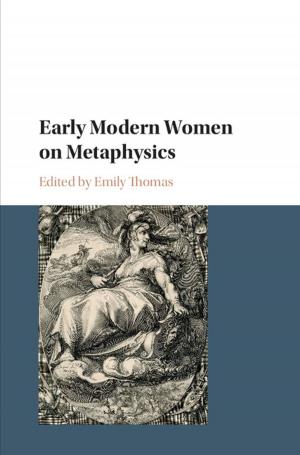The UN and Human Rights
Who Guards the Guardians?
Nonfiction, Reference & Language, Law, International, Social & Cultural Studies, Political Science| Author: | Guglielmo Verdirame | ISBN: | 9781139123969 |
| Publisher: | Cambridge University Press | Publication: | September 8, 2011 |
| Imprint: | Cambridge University Press | Language: | English |
| Author: | Guglielmo Verdirame |
| ISBN: | 9781139123969 |
| Publisher: | Cambridge University Press |
| Publication: | September 8, 2011 |
| Imprint: | Cambridge University Press |
| Language: | English |
Through an analysis of UN operations including international territorial administration, refugee camps, peacekeeping, the implementation of sanctions and the provision of humanitarian aid, this book shows that the powers exercised by the UN carry a serious risk of human rights abuse. The International Law Commission has codified and developed the law of institutional responsibility, but, while indispensable, these principles and rules cannot on their own ensure compliance and accountability. The 'liberty deficit' of the UN and of other international organisations thus remains an urgent legal and political problem. Some solutions may be available; indeed, recent state and institutional practice offers interesting examples in this respect. But at a fundamental level we need to ask ourselves whether, judged on the basis of the principle of liberty, the power shift from states to international organisations is always beneficial.
Through an analysis of UN operations including international territorial administration, refugee camps, peacekeeping, the implementation of sanctions and the provision of humanitarian aid, this book shows that the powers exercised by the UN carry a serious risk of human rights abuse. The International Law Commission has codified and developed the law of institutional responsibility, but, while indispensable, these principles and rules cannot on their own ensure compliance and accountability. The 'liberty deficit' of the UN and of other international organisations thus remains an urgent legal and political problem. Some solutions may be available; indeed, recent state and institutional practice offers interesting examples in this respect. But at a fundamental level we need to ask ourselves whether, judged on the basis of the principle of liberty, the power shift from states to international organisations is always beneficial.















